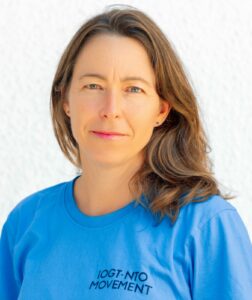Popular movements are threatened when the government nationalizes aid
Right now there is an attack on the people's movement in Sweden. The Tidö government wants to reduce the role of Swedish voluntary organizations in aid work. It would have devastating consequences for millions of people around the world who are reached by Swedish aid and for the knowledge and commitment that exists within civil society.
The government has proposed that Sida, the authority for international development cooperation, take over the popular movement assistance, the so-called civil society support. And yesterday came the news that Sida chooses to end all ongoing agreements with organizations under the strategy for support through Swedish organizations. Agreement that applies for several years to come and gives our partner organizations in the global south opportunities to work with, for example, strengthening girls' and women's rights, reducing alcohol-related harm and pushing for increased public health. Now that work is being forced to end prematurely.
That Sida takes over the work that the organizations carry out today means in practice the nationalization of Swedish people's movement assistance.
We now pose the question to the governing parties: Do you want to go down in history as the government that shut down the international work of the entire Swedish civil society?
Should all the commitment that members, donors and experts put into creating development, sustainability, democracy and human rights mean nothing anymore? Does the government want an authority to take on the role of the voice of the people, who, in their power as citizens, supports human rights activists who risk their lives to fight against oppressive and corrupt regimes?
Sweden is more than the state
Civil society is an important pillar of our society. Organizations and associations play a crucial role in creating a fairer and more sustainable world.
The international IOGT-NTO movement has for decades mediated aid to organizations and through it contributed to effective alcohol laws and local regulations that saved and protected thousands of lives on three continents. We challenge the alcohol industry and harmful alcohol norms globally and have built trust with our partner organizations through long-term cooperation. Our work produces results and we can prove it. We now need to defend one of our movement's strongest values, solidarity, because the government is now threatening to drastically weaken our ability to act internationally. We need to protest against this!
In Sweden, our people's movement engages people from north to south. People bake, set up flea markets and children run races to raise money, all while teaching principles of solidarity and international understanding. An active civil society contributes to solving social problems and pushing for change. Without our commitment and work for global development, society would be significantly poorer.
We give more than money.
In our movement, we have worked with aid since the 70s. Our long-term aid work currently extends over 12 countries and around 16 partner organisations. When we ask them what is best about our collaboration, they answer that we are partners in the fight against the harms of alcohol and how it hinders development. We are more than donors of money. We believe in them and their work. We remain, long-term, in good and bad times. We want each other's well-being. We understand and know the alcohol issue and can quickly familiarize ourselves with each other's challenges. All this is lost if aid is nationalized.
One of the government's arguments for the change is that popular movement aid is ineffective and expensive. But that is not true.
Civil society aid is reviewed and evaluated continuously and gets good results. We are cost-effective and we deliver results.
The IOGT-NTO movement has a small and efficient team that is present in two out of three regions where we work. We mainly have locally employed staff and low costs. Our project budgets are usually small, so that local organizations can manage them. We know our projects inside and out, and with close contact with our partner organizations, the risk of errors and fiddling is reduced.
Surveys show that the Swedish people have higher trust in the people's movement-based aid than the state aid. There is something in it. Very few other organizations have an alcohol perspective on their work for development. That is why we are needed.
The state's support for civil society and popular movement aid is important and should continue. We want the government to give us the conditions to continue working for free, sustainable and democratic societies in the future.

Communication Manager
maria.bergqvist@iogtntomovement.se

